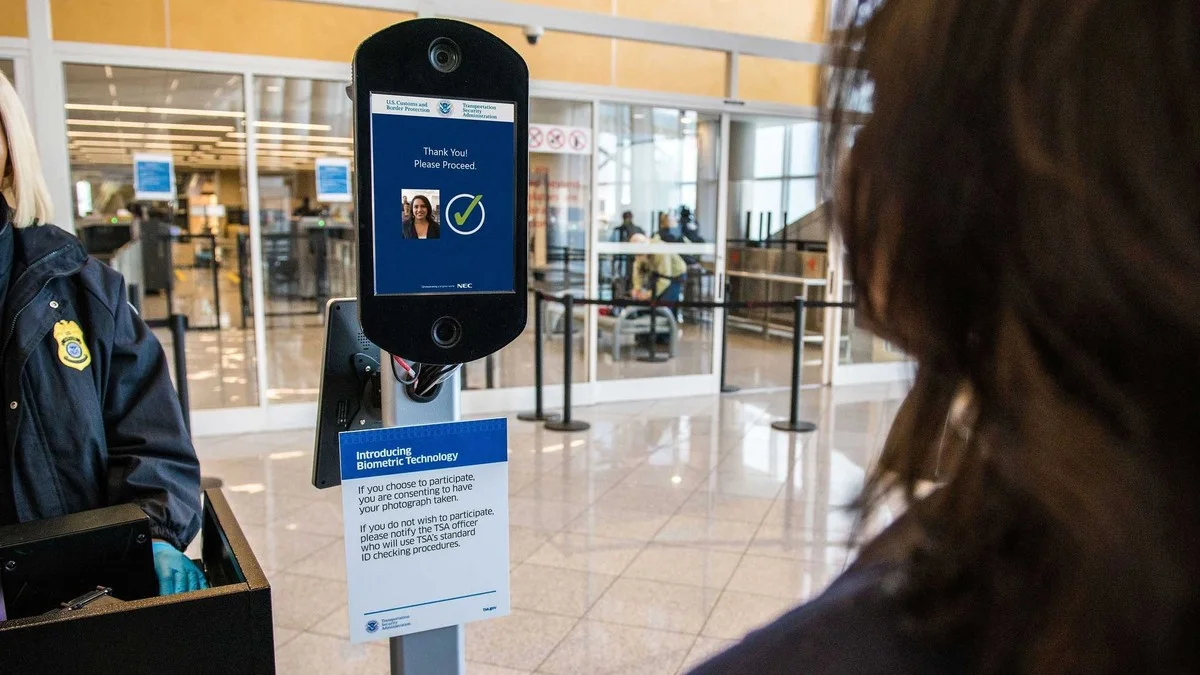13/08/2025
13/08/2025

NEW YORK, Aug 13: Travelers in the US airports may soon experience faster security lines — but only if they agree to let the government scan their faces.
The Department of Homeland Security (DHS) has introduced facial recognition software to its TSA PreCheck Touchless ID lines, which offer a speedier experience compared to regular TSA PreCheck lanes. These new lines have been implemented in response to longer waits in the standard PreCheck lanes as more passengers opt for the service, according to the Washington Post.
Initially launched at Dallas-Fort Worth International Airport in 2021, the program has since expanded to 15 major airports across the US. These include Chicago O'Hare, Dallas-Fort Worth, Denver, Detroit Metropolitan, Harry Reid International, Hartsfield-Jackson in Atlanta, JFK, LaGuardia, LAX, Newark, Portland International, Ronald Reagan, Salt Lake City, San Francisco, and Seattle-Tacoma International Airports.
However, not all facial recognition lanes are available at every airport or for every airline, so passengers should check in advance whether their specific airport and carrier participate in the program.
To use the Touchless ID lanes, travelers must be TSA PreCheck members with a valid Known Traveler Number, an active airline profile (such as a loyalty program), and a valid passport. Once registered, passengers simply need to walk through the facial recognition system, bypassing the need to hand over their ID, which helps reduce wait times.
Facial recognition lanes are typically faster than traditional security lines for two main reasons: they don't require travelers to stop and show their IDs, and the lanes are relatively new, meaning they're not yet overwhelmed with passengers.
While the program aims to streamline the security process, there are concerns surrounding privacy and data security. Critics have pointed to a 2019 incident in which a data breach exposed the photos of U.S. travelers through one of DHS's subcontractors, raising doubts about how facial data is stored and used.
In response, the TSA has assured travelers that all data in its databases is encrypted, and their information is protected from potential breaches. Furthermore, a proposed bill in the Senate would ensure that travelers must opt in to facial recognition technology. The bill would also restrict the use of facial data to identity verification only and mandate the immediate deletion of scans after the security check is completed.
For those uncomfortable with facial recognition scanning, the option to request a standard ID check is still available at security.


